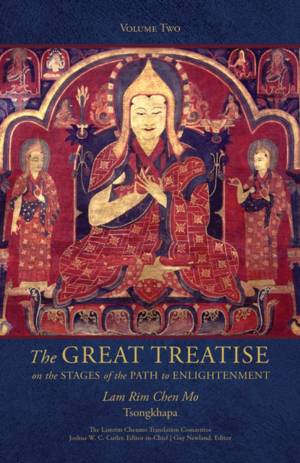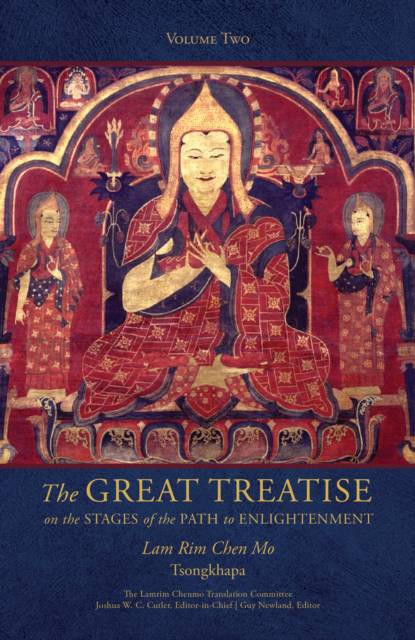
- Afhalen na 1 uur in een winkel met voorraad
- Gratis thuislevering in België vanaf € 30
- Ruim aanbod met 7 miljoen producten
- Afhalen na 1 uur in een winkel met voorraad
- Gratis thuislevering in België vanaf € 30
- Ruim aanbod met 7 miljoen producten
Zoeken
The Great Treatise on the Stages of the Path to Enlightenment (Volume 2)
Tsong-Kha-Pa
€ 55,45
+ 110 punten
Omschrijving
The Great Treatise on the Stages of the Path to Enlightenment (Lam rim chen mo) is one of the brightest jewels in the world's treasury of sacred literature. The author Tsong-kha-pa (1357-1419) completed this masterpiece in 1402 and it soon became one of the most renowned works of spiritual practice and philosophy in the world of Tibetan Buddhism. Tsong-kha-pa took great pains to base his incisive insights on the classical Indian Buddhist literature, illustrating his points with classical citations as well as with sayings of the masters of the earlier Kadampa tradition. In this way, the text demonstrates clearly how Tibetan Buddhism carefully preserved and developed the Indian Buddhist traditions. Volume One covers all practices that are prerequisite for developing the spirit of enlightenment (bodhicitta). Volume Two explains how to train in the six perfections in order to develop the heart of compassion indispensable for any student who wants to put the Dharma into practice. Volume Three contains a presentation of the two most important topics to be found in the Great Treatise: meditative serenity (shamatha) and supramundane insight into the nature of reality (vipasyana).
Specificaties
Betrokkenen
- Auteur(s):
- Vertaler(s):
- Uitgeverij:
Inhoud
- Aantal bladzijden:
- 304
- Taal:
- Engels
- Reeks:
Eigenschappen
- Productcode (EAN):
- 9781645474616
- Verschijningsdatum:
- 1/07/2025
- Uitvoering:
- Boek
- Afmetingen:
- 137 mm x 218 mm
- Gewicht:
- 362 g

Alleen bij Standaard Boekhandel
+ 110 punten op je klantenkaart van Standaard Boekhandel
Beoordelingen
We publiceren alleen reviews die voldoen aan de voorwaarden voor reviews. Bekijk onze voorwaarden voor reviews.







